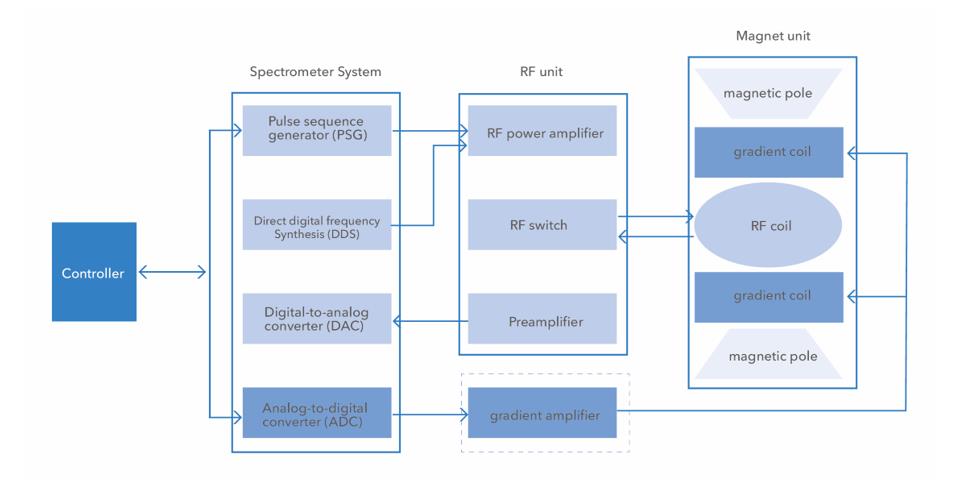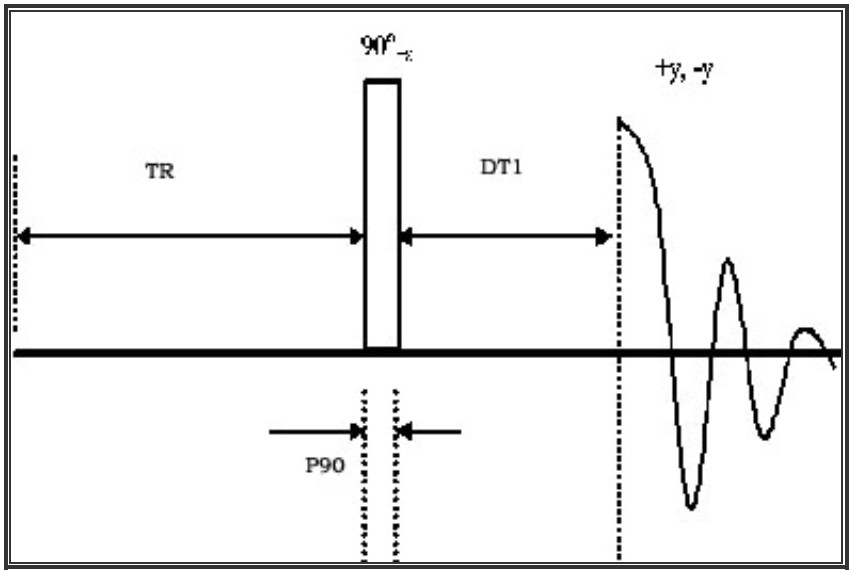Pulsed NMR Field Shimming Current
In the pulsed NMR system, the sample to be tested needs to be placed in a uniform static magnetic field, so that the proton magnetic moment in the water molecules in the sample tends to one direction, and the detection area is irradiated by radio frequency signals that can be absorbed by protons, and by applying radio frequency sequences and gradients Then, the returned resonance signal is received, and the regional NMR signal and image are obtained after signal processing. According to the requirements of the pulsed NMR system, the main magnetic field of the imaging magnet requires a higher uniformity. The more uniform the main magnetic field, the sharper the resonance absorption peak and the higher the signal-to-noise ratio. With the increasing requirements of pulsed NMR measurement, the requirements for signal-to-noise ratio are also increasing, so shimming technology becomes more important.
The most important part of the pulsed NMR system is the magnet, whose function is to provide a stable magnetic field environment. In order to ensure the uniformity of the positive magnetic field, the most important step of the pulsed NMR system is shimming. As the name implies, the intensity of the magnetic field is made uniform by shimming. The shimming process mainly adjusts the shimming current of the gradient coil.
Why Does Pulsed NMR Need Shimming?
First review the basic theory of pulsed NMR: in a certain magnetic field direction, the application of a radio frequency field perpendicular to the direction of the main magnetic field will deflect the hydrogen protons, and the recovery process after the deflection will generate useful pulsed NMR signals. This deflection is actually generated by the word “resonance” in our pulsed NMR.
Pulsed NMR Field Homogeneity
Pulsed NMR field homogeneity refers to the identity of the main magnetic field within a specific volume limit when there is no object under examination. In magnetic resonance systems, uniformity is measured in parts per million (ppm) as a unit of deviation.
Principle of Pulsed NMR Technology
Pulsed NMR technology mainly detects H protons but can also be used for F signal testing. After the H-containing sample is excited by a specific frequency of radio frequency, an NMR signal is generated. The H NMR signal corresponds to two main parameters, T1 and T2. By testing the relaxation time of T1 and T2 and modeling, it can be used for food, agriculture, oil exploration, polymers, solid fat content… many aspects of research. A number of methods have been developed to form standard and industry standard methods.
 NIUMAG
NIUMAG


